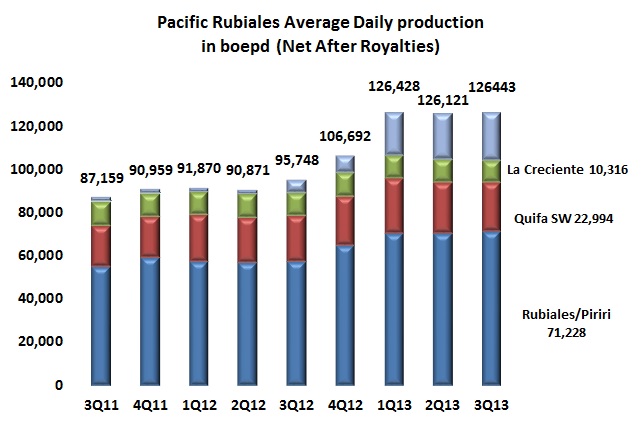The National Consulting Center did a study of the image of local mayors and departmental governors and published their latest findings. Here is a look at how the political heads of oil producing regions – Meta and Casanare – fared.

Ecopetrol (NYSE: EC) spoke to investors last week and one of the upbeat stories was about exploration, something the NOC often gets criticized for.
The debate in Colombia on oil production has centered mainly on the seismic impact on water sources, tankers in the road, spills and labor practices, but for the first time the controversy around Hydraulic Fracturing, or Fracking, in the United States has landed in the headlines of a major business newspaper.
This week the USO continued to call for the release of its Dario Cardenas Pachon, the VP of the Meta chapter, calling his arrest part of an orchestrated attempted by the government and oil companies to attack the organization.
At its 25th anniversary the Chamber of Oil Goods and Services (Campetrol) is bringing more local suppliers into the oil industry with operators and contractors, creating opportunities through a number of fronts, says its executive director.
Equion invited local journalists to conference on the effects of seismic exploration in Yopal led by one of its geologists that sought to dispel rumors that the tests are affecting the local water supply. A public referendum has been scheduled in the nearby Tauramena municipality which addresses this issue and asks residents to approve or reject nearby oil production in general.
Incidents near areas of interest to the oil and gas industry were back up this week to 38 above recent and long-term averages. Non-Armed Forces incidents were significantly above average at 27%. This is our indicator of increased guerrilla-initiated activity. Correspondingly, our 4-week Moving Average incident count was up to 35.0 but the 52 week average was down although essentially unchanged at 33.9 incidents per week.

During Pacific Rubiales Energy (TSX:PRE) call to discuss its third quarter 2013 results the company’s CEO Ronald Pantin sought to convince analysts that its production portfolio will be sufficiently diverse by the time its flagship field, Rubiales, starts to decline.
In order to finance road maintenance and improvements the Casanare secretary of public works and transport, Wilson Arenas, has proposed a toll system that would charge all oil tanker truckers using the public roadways.
Since May the peace talks in Havana have yet to render any solid agreements, but this week Farc and government negotiators announced common ground on the second of five agenda points: political participation.